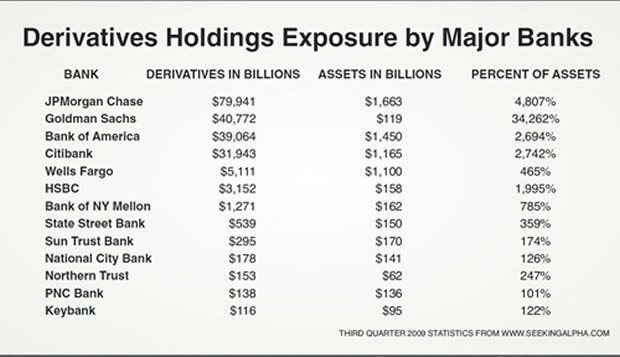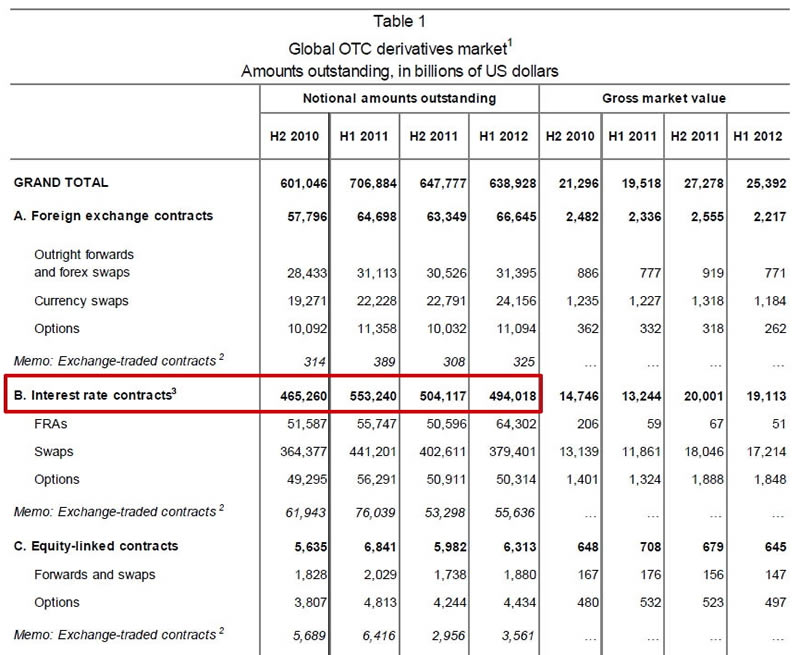Bankruptcy Bail-Ins Are Retirement Accounts Next?


Global Intelligence
Financial System


[A]s the financial crisis made painfully clear, the business of liquidity provision inevitably exposes financial intermediaries to various forms of run risk. That is, in response to adverse events, their fragile funding structures, together with the binding liquidity commitments they have made, can result in rapid outflows that, absent central bank intervention, lead banks to fire-sell illiquid assets or, in a more severe case, to fail altogether. And fire sales and bank failures–and the accompanying contractions in credit availability–can have spillover effects to other financial institutions and to the economy as a whole. Thus, while banks will naturally hold buffer stocks of liquid assets to handle unanticipated outflows, they may not hold enough because, although they bear all the costs of this buffer stocking, they do not capture all of the social benefits, in terms of enhanced financial stability and lower costs to taxpayers in the event of failure. It is this externality that creates a role for policy. [3]
[Newton’s] third law of universal motion was that for each and every action there is an equal and opposite reaction. While applicable to the natural world, it does not hold with respect to the actions of financial markets and the subsequent reactions of central banks and other regulators. Indeed, the reactions of regulators are consistently disproportionate to the actions of financial markets. In sinister dialectical fashion, the powers assumed and mistakes made by policymakers tend to grow with each crisis, ?thereby ensuring that future crises become progressively more severe…[W]as the Fed’s policy reaction to the 1987 crash proportionate or even appropriate? Was it “an equal but opposite reaction” which merely temporarily stabilised financial markets or did it, in fact, implicitly expand the Fed’s regulatory role to managing equity prices? Indeed, one could argue that this was merely the first of a series of progressively larger “Greenspan Puts” which the Fed would provide to the financial markets during the 18 years that the so-called “Maestro” was in charge of monetary policy and, let’s not forget, bank regulation…By the late 1980s, a huge portion of the S&L industry was insolvent. The recession of 1990-91, made a bad situation worse. FSLIC funds were rapidly depleted. But a federal guarantee is supposed to be just that, a guarantee, so Congress put together a bailout package for the industry. A new federal agency, the Resolution Trust Corporation (RTC), issued bonds fully backed by the US Treasury and used the proceeds to make insolvent S&L depositors whole…In retrospect, the entire S&L debacle, from its origins in regulatory changes and government guarantees, through the risky lending boom, bust, credit crunch and fiscal and monetary bailout can be seen as a precursor to the far larger global credit bubble and bust of 2003-2008: Just replace the S&Ls with Fannie/Freddie and the international shadow banking system. But there is no need to change the massive moral hazard perpetrated by incompetent government regulators, including of course the Fed, and the reckless financial firms who played essentially the same role in both episodes.[4]
The European Union agreed on Thursday to force investors and wealthy savers to share the costs of future bank failures, moving closer to drawing a line under years of taxpayer-funded bailouts that have prompted public outrage.After seven hours of late-night talks, finance ministers from the bloc’s 27 countries emerged with a blueprint to close or salvage banks in trouble. The plan stipulates that shareholders, bondholders and depositors with more than 100,000 euros ($132,000) should share the burden of saving a bank.The deal is a boost for EU leaders, who meet later on Thursday in Brussels, and can show that they are finally getting to grips with the financial crisis that began in mid-2007 with the near collapse of Germany’s IKB.“For the first time, we agreed on a significant bail-in to shield taxpayers,” said Dutch Finance Minister Jeroen Dijsselbloem, referring to the process in which shareholders and bondholders must bear the costs of restructuring first.The rules break a taboo in Europe that savers should never lose their deposits, although countries will have some flexibility to decide when and how to impose losses on a failing bank’s creditors.“They can affect German savers just as well as they can affect any other investor in the world,” German Finance Minister Wolfgang Schaeuble said after the meeting.* * *But thorny issues lie ahead, not least whether countries or a central European authority should have the final say in shutting or restructuring a bad bank.The European Commission, the EU executive, is expected to unveil its proposal for a new agency to carry out this task of “executioner” as early as next week, officials said.“The most important discussion has yet to start and that is how decisions on restructuring will be made,” said Nicolas Veron, a financial expert at Brussels-based think tank Bruegel. “It’s premature to say that Europe is getting its act together.”Many Europeans remain angry with bankers and the easy credit that helped create property bubbles in countries including Ireland and Spain, which then burst and plunged Europe into a recession from which it has yet to recover.
http://www.zerohedge.com/news/2013-06-27/europe-make-cyprus-bail-regime-continental-template
Continue Reading‘If one of you stands up right now and heads for the exit, the rest of the audience probably won’t pay much attention. If ten of you do it, one or two people may notice and follow. But if 400 of you suddenly head for the exit, the rest of the audience would probably follow quickly.’
“Time is running out fast,” said Mediobanca’s top analyst, Antonio Guglielmi, in a confidential client note. “The Italian macro situation has not improved over the last quarter, rather the contrary. Some 160 large corporates in Italy are now in special crisis administration.”The report warned that Italy will “inevitably end up in an EU bail-out request” over the next six months, unless it can count on low borrowing costs and a broader recovery.Emphasising the gravity of the situation, it compared the crisis with when the country was blown out of the Exchange Rate Mechanism in 1992 despite drastic austerity measures.…“The European Central Bank needs to take very aggressive steps to offset this,” said Marchel Alexandrovich from Jefferies Fixed Income. “We have a sell-off across the board. If the ECB doesn’t act, it could see all the gains of the past nine months vanish in two weeks, taking the eurozone back to square one.”…“We have clear signs in global finance of a generalised meltdown in assets right now.”…Mediobanca said the trigger for a blow-up in Italy could be a bail-out crisis for Slovenia or an ugly turn of events in Argentina, which has close links to Italian business. “Argentina in particular worries us, as a new default seems likely.”Mr Guglielmi said Italy’s industrial output has slumped 25pc from its peak in the past decade, while disposable income has dropped 9pc and house sales have dropped to 1985 levels.The 1992 crisis was defused by a large devaluation, allowing Italy to restore trade competitiveness at a stroke. Mediobanca said: “The euro straitjacket is clearly not providing a similar currency flexibility today. With the lira devaluation Italy managed to inflate debt away, which it cannot do today. It could take more than 10 years to revert to pre-crisis output levels.
http://www.zerohedge.com/news/2013-06-25/time-running-out-fast-italy
Continue ReadingFrom Caijing, google translated. We hope the gist of the narrative in Mandarin is far less scary, because if the translation is even remotely accurate, then all hell may be about to break loose in China.From Caijing: Bank of China, Bank of suspens…
Continue ReadingThe Bank for International Settlements (BIS) says banks have done their bit to help economic recovery and governments must do more.The Basel-based organisation – usually dubbed the “central banks’ central bank” says it is time for them to stop pum…
Continue ReadingThe International Monetary Fund is preparing to suspend aid payments to Greece by the end of next month unless eurozone leaders plug a €3bn-€4bn shortfall that has opened up in Greece’s €172bn rescue programme, according to officials involved in management of the bailout.The gap emerged after eurozone central banks refused to roll over Greek bonds they hold, and comes amid signs that even the scaled-back privatisation plan Athens agreed to last year is falling behind schedule.…The shortfall will force eurozone finance ministers to discuss “alternate sources” of funding…But the timing is particularly awkward as Germany is holding parliamentary elections on September 22. In the run-up to polling day Chancellor Angela Merkel will be loath to submit any further aid request to the Bundestag where it would likely be highly controversial.…the IMF has warned EU officials the gap will require it to stop aid payments at the end of July, said a person involved in the discussions.Under its rules, governments must have at least 12 months of financing in place to receive IMF disbursements under a bailout programme. This latest shortfall of €3bn-€4bn means that Greece’s financing needs are only covered up to the end of July 2014.
http://www.zerohedge.com/news/2013-06-20/stocks-plunge-imf-tells-greece-plug-holes-or-it-pulls-plug
Continue ReadingWells Fargo & Co., the largest U.S. mortgage lender, is offering 30-year fixed-rate loans at 4.5 percent, according to its website, up from 4.13 percent on June 18 and 3.88 percent on May 22, when comments by Bernanke to lawmakers and the release of the minutes of the last Fed meeting caused bonds to plummet. Freddie Mac’s survey, which is lagging behind the bond slump because it reflects originator responses through yesterday, showed average rates falling to 3.93 percent this week.
Follow GIH and get free updates on Global Intelligence, Analysis, and more.